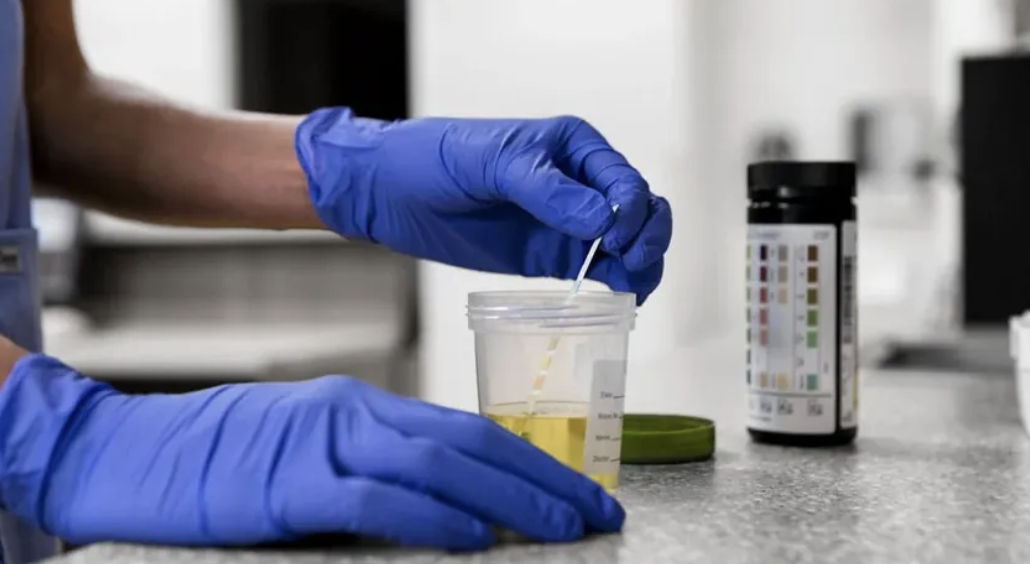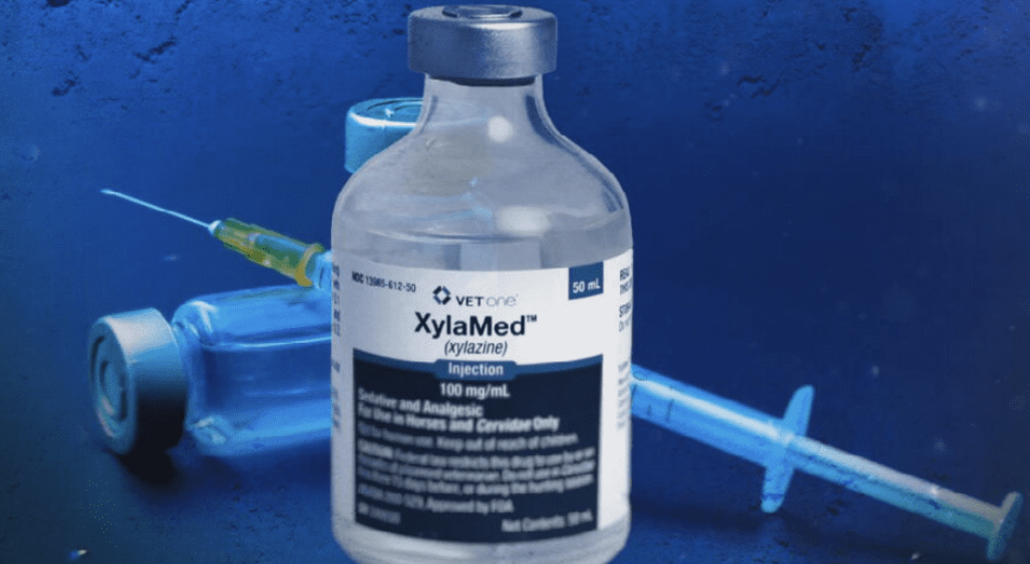Taking Suboxone requires careful management of other medications you use. Some drugs can dangerously interact with Suboxone, causing severe side effects like respiratory depression, sedation, or a drop in the treatment’s effectiveness. This guide will detail “what medications can you not take with Suboxone” to help you avoid these risks.
Key Takeaways
- Suboxone, made of buprenorphine and naloxone, is crucial for treating opioid addiction but can interact negatively with other medications.
- Combining Suboxone with sedatives, other opioids, CNS depressants, certain antidepressants and antianxiety medications, and CYP3A4 inhibitors or inducers increases the risk of severe side effects or reduces its effectiveness.
- Patients must communicate openly with healthcare providers about all medications, including over-the-counter drugs, to prevent harmful interactions while undergoing Suboxone treatment.
What is Suboxone, and how does it work?
Suboxone is a medication specifically designed to combat opioid addiction by reducing withdrawal symptoms and cravings. It is composed of two active ingredients: buprenorphine and a drug called naloxone. Buprenorphine treatment is a partial opioid agonist that helps alleviate withdrawal symptoms without providing the same “high” as other opioids. Naloxone, on the other hand, is an opioid antagonist that counters the effects of opioids, reducing the potential for misuse.
The combination of these two drugs makes Suboxone effective in treating opioid use disorder. However, because it interacts with the central nervous system and liver metabolism, understanding Suboxone interactions is crucial to avoid serious risks and compromised treatment outcomes. These interactions are crucial to understand to avoid compromising the treatment or experiencing adverse effects. Additionally, it is important to treat opioid use disorder effectively.

Why is it important to avoid certain medications with Suboxone?
Combining Suboxone with other medications can result in serious side effects, such as respiratory depression, severe sedation, and even coma. This is because drug interactions can alter how Suboxone works, either amplifying its effects or reducing its effectiveness, potentially leading to withdrawal symptoms or diminished therapeutic outcomes. Specific drugs can exacerbate these risks, making it crucial to understand and avoid dangerous combinations.
The role of the CYP3A4 enzyme in drug interactions cannot be overstated. This enzyme is responsible for metabolizing many substances in the liver, including Suboxone. Certain medications can inhibit or induce CYP3A4, thus altering the levels of Suboxone in the body and leading to unpredictable effects. This highlights the importance of consulting healthcare providers about all medications being taken to prevent harmful interactions.
Mixing Suboxone with substances that induce drowsiness, like sedatives or antihistamines, can significantly impair cognitive and motor skills. Even alcohol consumption while on Suboxone can worsen side effects and increase the risk of overdose. Thus, keeping healthcare providers informed about all medications, including over-the-counter drugs, helps prevent dangerous interactions.

What medications should not be taken with Suboxone?
Knowing which medications to avoid while on Suboxone is crucial for treatment success. Certain drug interactions can undermine Suboxone’s effectiveness and pose significant health risks. The following categories of medications should be avoided or used with caution during Suboxone treatment.
These categories include:
- Benzodiazepines and other sedatives
- Other opioids or partial agonists
- CNS depressants such as alcohol and muscle relaxants
- Specific antidepressants and antianxiety medications
- CYP3A4 inhibitors and inducers
Each category poses unique risks and challenges, which we will explore in the following subsections.
1. Benzodiazepines and other sedatives
Mixing Suboxone with benzodiazepines, such as Xanax (alprazolam), Klonopin (clonazepam), and Valium (diazepam), can lead to dangerously slowed breathing and severe sedation. This combination significantly increases the risk of respiratory depression and overdose, posing a life-threatening danger. The FDA has issued strong warnings about the concurrent use of benzodiazepines and opioids like Suboxone due to these high risks.
Furthermore, the use of benzodiazepines alongside Suboxone can lead to extreme drowsiness, impaired motor function, and decreased cognitive abilities. Studies indicate a high prevalence of benzodiazepine use among individuals taking buprenorphine, raising serious health concerns.
Physical dependence on benzodiazepines can also develop rapidly, increasing the risk of Suboxone addiction and complicating the treatment process.
2. Other opioids or partial agonists
Combining Suboxone with other opioids, such as oxycodone or methadone, can reduce its effectiveness and increase the risk of overdose. This is because Suboxone acts as a partial opioid agonist, blocking the effects of full agonist opioids and potentially precipitating withdrawal symptoms. This interaction can destabilize the patient’s condition, making it crucial to avoid mixing buprenorphine and these substances.
Using other partial agonists with Suboxone can lead to unpredictable effects and may not provide adequate pain control. Additionally, the concurrent use of Suboxone with other opioids can counteract its intended therapeutic effects due to its blockade of opioid receptors. Therefore, patients on Suboxone should avoid other opioids to prevent complications and ensure the stability of their treatment.
3. CNS depressants (alcohol, muscle relaxants, antipsychotics)
Combining Suboxone with CNS depressants, such as alcohol, muscle relaxants like carisoprodol, and antipsychotic medications like quetiapine and risperidone, significantly increases the risk of severe sedation and respiratory depression. These substances can amplify the sedative effects of Suboxone, leading to impaired cognitive function and increased likelihood of fatal outcomes.
Alcohol consumption while on Suboxone can exacerbate side effects like nausea and decreased mental function, especially for individuals struggling with alcohol addiction. The risk of severe health effects, including coma and death, rises when Suboxone is used in conjunction with multiple CNS depressants. Therefore, it is essential to avoid these substances to ensure the safety and effectiveness of Suboxone treatment, especially if you drink alcohol.
4. Certain antidepressants and antianxiety medications
Certain antidepressants and antianxiety medications can interact with Suboxone, worsening side effects or leading to potentially life-threatening conditions like serotonin syndrome. This is particularly true for SSRIs, SNRIs, and tricyclics, including fluoxetine, sertraline, venlafaxine, and amitriptyline. Additionally, it is important to be aware of suboxone interactions.
Using these antidepressants with Suboxone can heighten the likelihood of serotonin syndrome, characterized by symptoms such as agitation, hallucinations, and rapid heart rate. Additionally, some antidepressants can interfere with Suboxone metabolism, leading to increased side effects or withdrawal symptoms.
Therefore, it is crucial to consult with healthcare providers before combining these medications with Suboxone.
5. CYP3A4 inhibitors and inducers
CYP3A4 inhibitors and inducers play a significant role in the metabolism of Suboxone, affecting its levels in the body and its overall effectiveness. Examples of CYP3A4 inhibitors include ketoconazole, erythromycin, and ritonavir, which can increase the effects of Suboxone by slowing its metabolism.
Conversely, CYP3A4 inducers, such as rifampin, carbamazepine, and St. John’s Wort, can decrease the effectiveness of Suboxone by speeding up its metabolism. These changes in liver metabolism can lead to either an overdose or reduced therapeutic effects, highlighting the importance of managing these potential drug interactions and other interactions carefully.
Can you take over-the-counter medications with Suboxone?
Even over-the-counter (OTC) medications can pose risks when taken with Suboxone. Common OTC drugs that can interact with Suboxone include:
- Antihistamines (diphenhydramine)
- NSAIDs
- Sleep aids These interactions can lead to increased sedation or other adverse effects. Therefore, it is essential to be cautious when considering OTC medications while undergoing Suboxone treatment.
Consulting online Suboxone doctors before taking any OTC drugs helps avoid potential interactions and ensures safe medication use. They can provide guidance on safe medication use and can prescribe suboxone to help prevent interactions that could compromise the effectiveness of Suboxone treatment.
What symptoms may signal a dangerous interaction with Suboxone?
Recognizing the symptoms of a dangerous interaction with Suboxone is vital for ensuring timely intervention and preventing severe health consequences. Symptoms such as:
- extreme sleepiness
- confusion
- shallow breathing
- Fainting are red flags that warrant immediate medical attention.
Regular monitoring and open communication with healthcare providers can help manage these risks effectively. Patients should report any unusual symptoms promptly and tell their doctor about their health history if they experience severe pain, adverse effects, allergic reactions, or trouble breathing.

How to manage medications safely while on Suboxone?
Managing medications safely while on Suboxone requires diligence and proactive communication with healthcare providers. Maintaining an updated list of all medications, including prescription drugs, OTC drugs, and supplements, is essential. Share this list with all healthcare providers involved in the patient’s care to ensure coordinated and safe treatment.
Regular follow-ups and liver function monitoring are also crucial for managing potential interactions and ensuring the effectiveness of Suboxone treatment. Patients should be encouraged to stay informed about their medications and actively participate in their healthcare decisions.
Bottom Line: Medications to avoid while taking Suboxone
Avoiding dangerous medication combinations while taking Suboxone is crucial for ensuring a safe and effective treatment journey. Informing healthcare providers about all medications, including OTC drugs and supplements, can help prevent harmful interactions.
Patients should actively manage their recovery, avoid alcohol and sedatives, and follow professional guidance to reduce life-threatening side effects. By staying informed and vigilant, patients can navigate their starting suboxone treatment safely and successfully using a sublingual film.
FAQs about medication interactions with Suboxone
Can you take ibuprofen or acetaminophen with Suboxone?
It is generally safe to take ibuprofen or acetaminophen with Suboxone; however, consulting your healthcare provider beforehand is advisable.
What about antibiotics or birth control pills?
Antibiotics and birth control pills can interact with Suboxone, making it essential to consult your healthcare provider for safe usage. Prioritizing open communication about all medications will help ensure your health and safety.
Is it safe to use Suboxone with blood pressure medications?
It is generally safe to use Suboxone with blood pressure medications, but it is essential to consult your healthcare provider to monitor for any potential interactions.
What should I do if I accidentally took a contraindicated medication with Suboxone?
If you accidentally take a contraindicated medication with Suboxone, it is crucial to seek medical advice immediately. Your healthcare provider will ensure your safety and advise you on the necessary steps.
Can Suboxone be taken with herbal supplements?
Suboxone may interact with herbal supplements, so it is crucial to consult your healthcare provider about any supplements you are using.
















